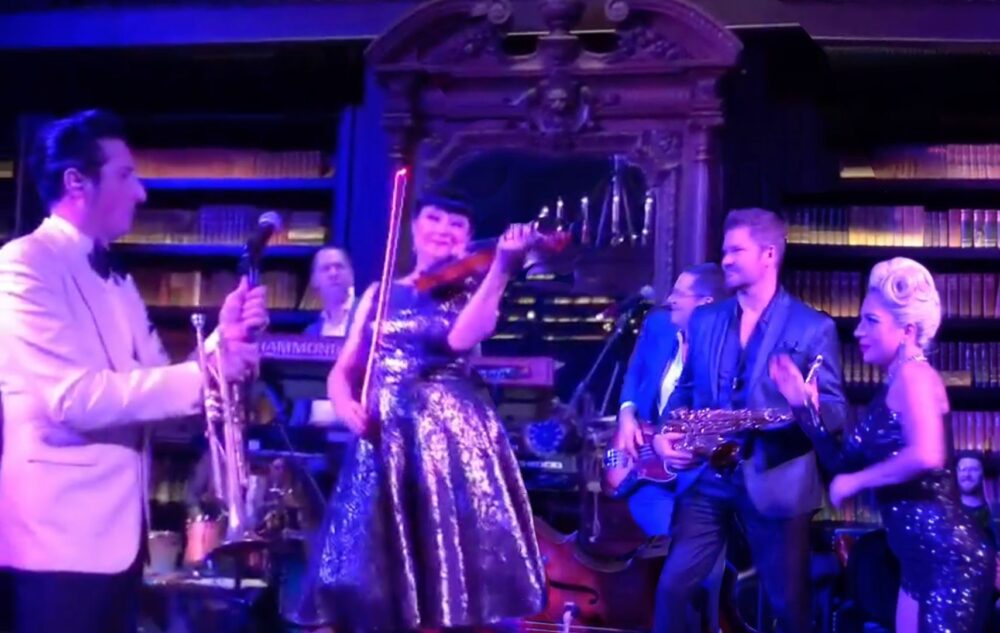There is a double standard when it comes to women as professional musicians in rock music. Men can be ugly as sin, but if they play a guitar or sing in a band, many women are almost instantly attracted to them. But for female musicians, that standard is much different. It seems that the appearance/sex appeal has to be first and foremost, then the talent has to be greater than the average male to support it. This is solely based on my observations and conclusions as a professional musician for over twenty years, but it’s my blog about my opinion, yes?
When exactly did it become acceptable for women to be professional musicians? I was having this discussion last night with one of my students as we were going through the history of minuets, trios and other “old dances.” We were discussing how the “employed” musicians were all male in the European courts, churches, etc. We even discussed how there are still orchestras in Europe that are male-only as it was back in the day. Sure, ladies were taught the arts and music, but were never expected to perform professionally. The most well-known composers from the past few hundred years are all DWEMs (Dead White European Males). I can only think of a handful of female composers who are remembered from those eras. Perhaps it was due to the fact that society saw women as the homemakers and educators of children, not as creators or workers for pay. Perhaps it was due to the fact that women were not even considered individuals; only associated through their fathers or husbands or sons.
Whatever the reason, I am grateful that society has adapted as much as it has these last few hundred years. Still, there are more challenges to overcome. In the United States, women were finally given the right to vote just this past century. Certain jobs that were considered exclusive for men have been opened for women, too. Don’t get me wrong; I don’t support a different standard when it comes to testing for certain positions (especially those involving public safety where physical attributes are required); I simply support that the discrimination should not be based solely on sex. I know many women who are healthier and can bench press double what their male counterparts can do.
Back to the topic, there just aren’t many female “superstars” in the music world. In the symphonic setting, I am thrilled to finally see more females in orchestras, more female soloists fronting orchestras, and programs highlighting female composers. In the rock setting, it has only really been in the last thirty years where females have taken center stage. Janis Joplin was one of the first in the 1960s, but she was a true exception. Look at the list of bands they play on “Classic Vinyl” or “Classic Rock” stations: how many of these groups even include a female in the band? Sure, they may have hired them for backup vocals or other session work, but the core band is usually all male. Yes, there were some exceptions (Diana Ross, Tina Turner, ABBA), but the vast majorities were all male.
It’s not really until the 1980s where females were more prominent: Madonna, Annie Lennox, Deborah Harry, Pat Benatar, Cyndi Lauper, and Stevie Nicks. In the 1990s, Alanis Morissette joined the list, but still not too many memorable other female artists. In 2000s, Lady Gaga, Britney Spears and Beyonce were the most prominent, but even still, males dominate the top 100 list. What do all these ladies have in common? Pleasant appearance; they are “easy on the eyes” and beautiful to watch. Sure, they had to be talented to support it (I already know many of you are questioning Britney’s talent – me, too), but I know many more talented female musicians who just don’t have a sexy look that will sell out an arena. Promoters want sex appeal for women and for men. It seems the difference for men is that as long as they can swagger while singing or play their guitar like it’s an extension of their male member, they are considered sexy.
Even today, the top bands are all male (Coldplay, U2). The top females of today have used highlighting their physical appearances to promote themselves; but it seems they have had to prove themselves again and again with their talent to stay on top of the charts. Those who know me know that I love and admire Lady Gaga, but even she had to create a persona before she became a top-selling artist. Her Julliard classical training gave her the tools she needed, but her personality and drive enhanced her success. Still, I wonder: Would she have become as famous had she not performed naked that one night in a bar in New York City and changed her name? Double standard – oh yes.
